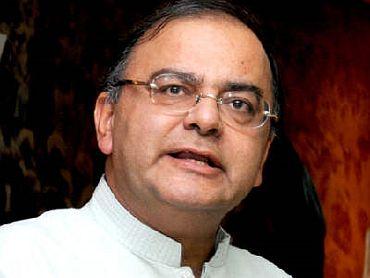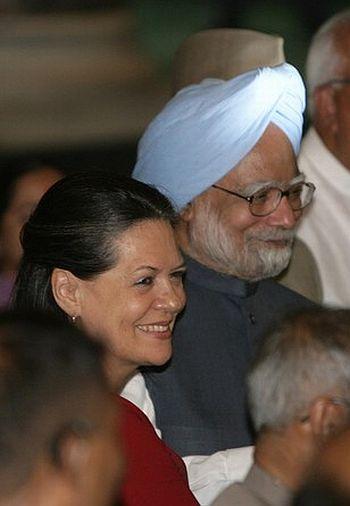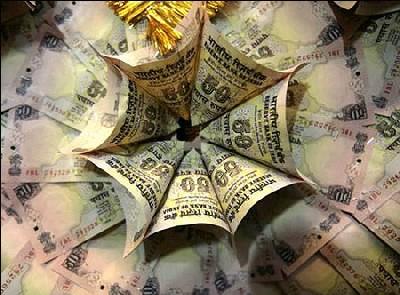
Claiming that Prime Minister Manmohan Singh and United Progressive Alliance Chairperson Sonia Gandhi are not on the same page, the Bharatiya Janata Party on Monday said government has to be large-hearted and not act as "big brother" for creating a political consensus, which is key to economic reforms.
"If you need a political consensus, government has to be big-hearted. You cannot continue to act like the big brother," Leader of the Opposition Arun Jaitley said initiating the debate in the Rajya Sabha on the Appropriation Bill moved by Finance Minister Pranab Mukherjee.
Questioning the political structure of the UPA, Jaitley said, "The prime minister cannot be a CEO merely implementing decisions by the board... he must be vested with authority and confidence."
...

Unlike UPA-I, where the twin leadership was on the same page, in UPA-II they appear to be on different pages, even ideologically, Jaitley said.
He said even on issues like FDI in retail, there was not a single statement from the UPA Chairman and there was no consensus even within UPA constituents. "Before we can be told, ...

He said the Indian manufacturing sector required a number of reforms and it would be ill-advised to open the retail sector "we can implement effective reforms to reduce the cost of our own manufacturing".
Jaitley said during the NDA regime, Congress leader Priya Ranjan Dashmunshi had opposed FDI in retail calling it "anti-national" and the government at that time had not allowed it.
Expressing concern over the declining levels of FDI in-flow in the country, Jaitley said a situation had arisen where even Indian corporates were also looking for better avenues for investments.
He said the government has failed to inspire both external and internal players to invest in the Indian economy.
Jaitley said the economic figures don't generate much hope about the economy and there were several indicators which suggested that the economy would be in its "grimmest" situation in the post-liberalisation era.
He said hike in interest rates has had an impact on several sectors including manufacturing and housing, and feared that it will have a cascading effect on prices and hit job creation.